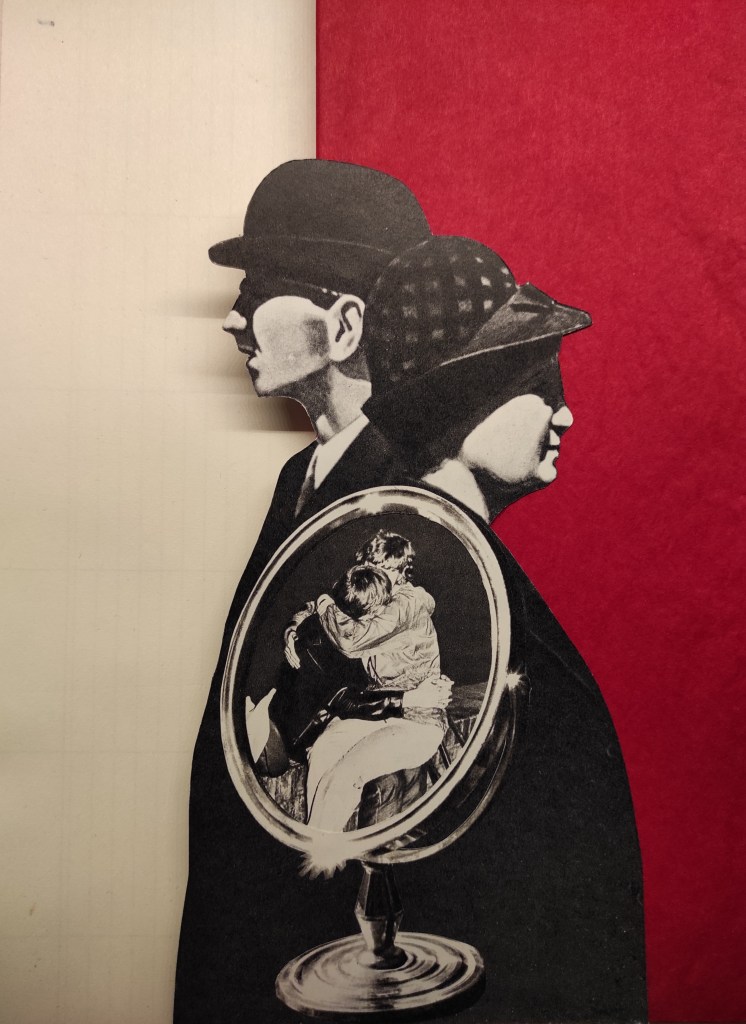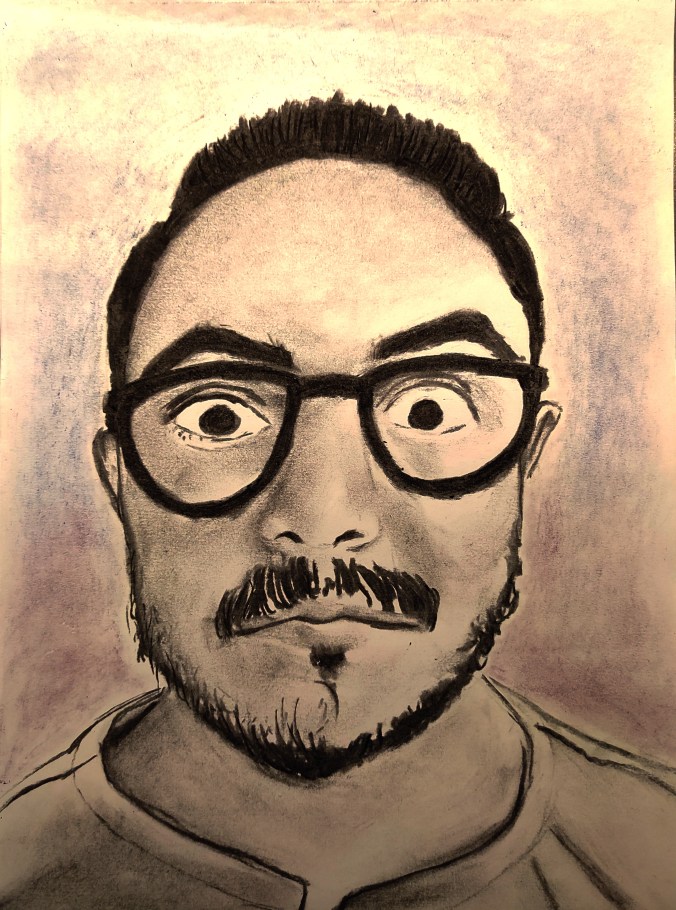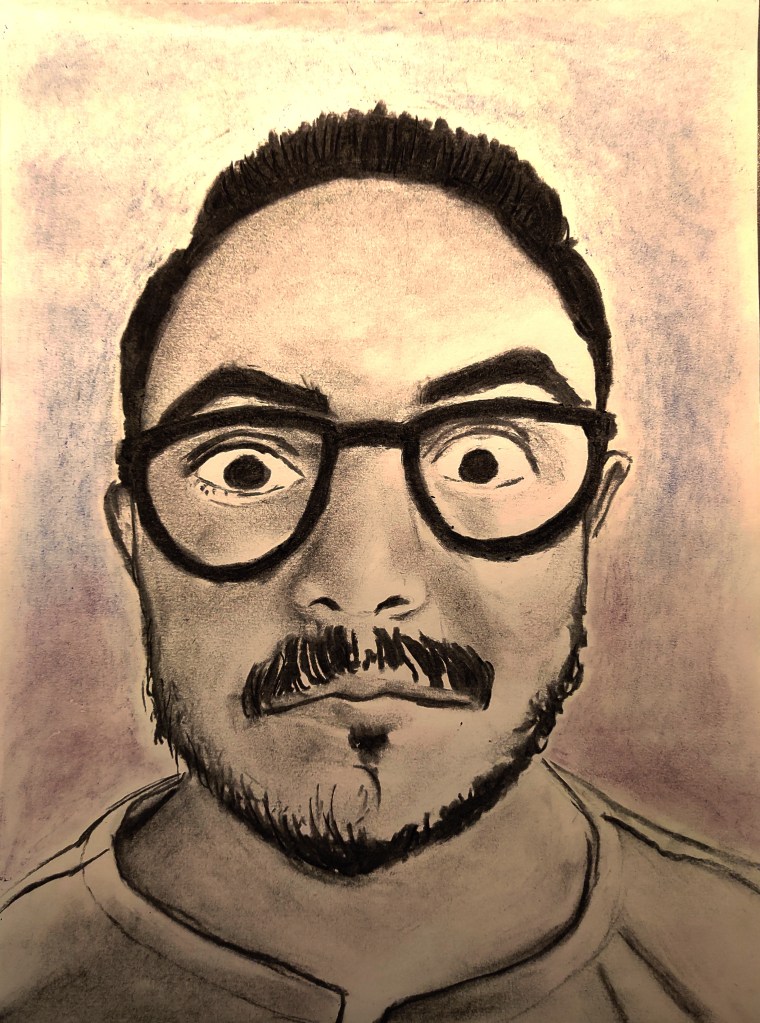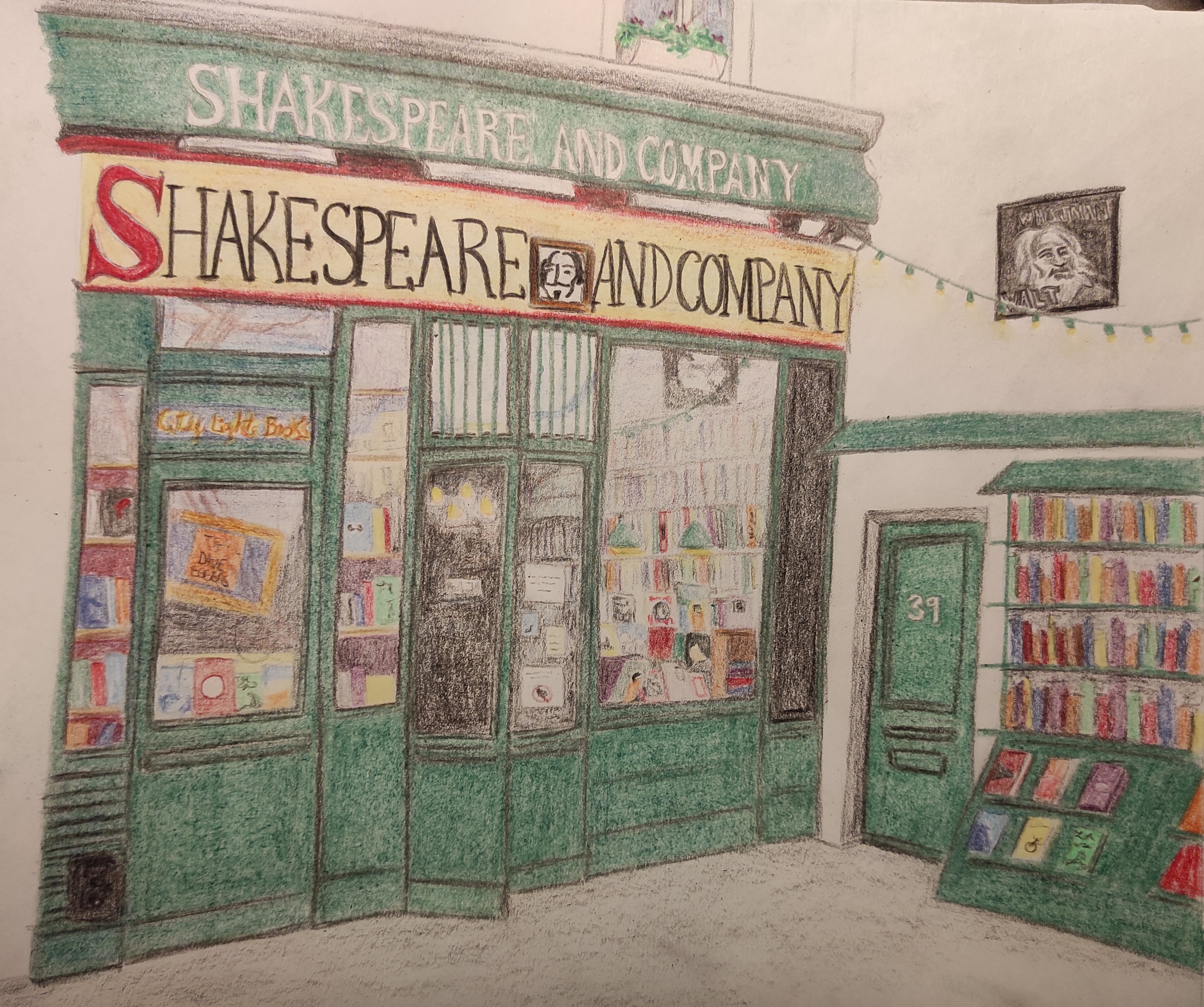Small town, big hell, the Spanish saying goes and if the town is also an island, the situation gets worse because escaping it is more difficult. However, at the beginning of The Banshees of Inisherin, one would think that there is no reason to run away and that we are entering paradise and not hell when the camera pushes through a veil of clouds to reveal the wide green valleys of an Irish island. There we meet Pádraic Súilleabháin (Colin Farrell), a happy inhabitant of the paradise that is Inisherin, strutting through town, offering smiles to his fellow islanders while a rainbow is drawn behind him. As if that were not enough, the music that accompanies us on this trip seems to be sung by an angelic choir. Although, if one were lucky enough to speak Hungarian (or if, like yours truly, they later looked up the meaning of those lyrics) they would know that this song is not a celebration but a warning: “unwanted wind, / why now have you decided blow?/I was dreaming a sweet dream.” So Pádraic, like the rest of the audience, will wake up soon.
Pádraic Súillebháin is a simple and happy man. His life consists of taking care of his animals: a couple of cows, a horse and a miniature donkey, selling milk, sharing a few hours a day with his dear sister Siobhán Súillebháin (Kerry Condon) and going daily to the local pub with his best friend, Colm Doherty (Brendan Gleeson). The problem is that one fateful afternoon, without warning, Colm no longer wants to be friends with him. “I don’t like you anymore,” Colm tells him, explaining that he wants to spend the rest of his time on earth thinking and making music, and he says it all with such withering ease, so devoid of animosity, that the break up seems calculated and final. Faced with Pádraic’s repeated attempts at reconciliation, Colm decides to issue an ultimatum: for every time Pádraic speaks to him again or sends anyone else as an emissary, Colm will cut off a finger of his left hand, his violin playing hand, until he runs out of fingers if necessary. Of course, Pádraic will not stop and Colm will prove his was no empty threat.
The dissolution of male friendship is a theme that has been explored in film many times. Some prominent examples include: The Social Network, The Treasure of the Sierra Madre, Once Upon a Time in America, and The Third Man. Generally, it’s the deterioration of the bond and its causes that guides the plot, but in The Banshees of Inisherin this is just the incident that sets the story in motion; a story that, as always with Martin McDonagh, is one of expansive violence: what begins with a bloody finger thrown at the door, will end in death, fire and a confrontation with no end in sight.
This all sounds very depressing, and anyone who hasn’t seen the movie will be surprised to learn that it’s actually, at least in part, a comedy. A black comedy, in the purest style of Martin McDonagh who has already made comedies where there is infanticide (In Bruges, also starring the Farrell-Gleeson duo), serial murderers (Seven Psycopaths) and rape, murder and police brutality (Three Billboards Outside Ebbing, Missouri)—and that’s not to mention his pitch black plays. Dare I say, the true art of McDonagh, beyond his sharp dialogues and his original premises, is his ability to balance on the tightrope of laughter when he walks over such dark abysses. His secret, I think, is that for him humor is never an easy way out or a way to brighten the mood. In the saddest moments, McDonagh always gives space for us to feel the gravity of events. Tragedy comes first, as the ultimate truth of life, and comedy results precisely from the absurdity that life goes on, not stopping to consider the pain. The mundane and inconsequential, the clumsiness and the small mistakes, everything continues, even if the personal world collapses. Never in McDonagh’s film career has that balance achieved the precision it does in The Banshees of Inisherin and never has his cinema been better.
The Banshees of Inisherin is that rare movie that we can call perfect. It’s modest in its ambition, but every piece falls in its place. Ben Davis’ cinematography elevates the already magnificent landscape and gives it an air of myth —ambiguous, at once peaceful and threatening. Carter Burwell’s soundtrack is subtle and effective. The composer has said he found the right music for the film while reading Grimm’s fairy tales to his daughter. He realized that The Banshees of Inisherin is a fairy tale like those: simple and luminous in appearance, dark and dense at its core.
The performances of the four main actors are stupendous. Colm’s coldness, the severity with which he punishes Pádraic, could easily make him a villain in the audience’s eye, but Brendan Gleeson infuses the character with a heavy sadness, an old-animal restlessness, and thanks to it we see him for what he really is: a man frightened by the passage of time. Barry Keoghan continues to expand his histrionic range (he’s already had formidable roles in American Animals, Calm With Horses, and The Killing of a Sacred Deer—where he also shares the screen with Colin Farrell) playing Dominic, the «dimmest guy in the island”, a boy abused by his father, the despicable officer Peadar Kearny, and ignored or flatly avoided by the rest of the town. It is always a risk to play characters with an intellectual disability who are often haunted by caricature and sentimentality. Keoghan avoids these pitfalls and achieves a nuanced Dominic, at times irritating and crude, at times compassionate and delicate, at times even the voice of reason. Kerry Condon—a theater veteran, relatively unknown on film—makes Siobhán both the most tragic and the most heroic of the characters: with her sensibility that drives her away and makes her an island unto herself, with her sharp humor and forthright character that serve her as a shield. And finally Colin Farrell as Pádraic. What a work of beauty: the helplessness in his eyes, his pitiful vulnerability, his child-like transparency, followed by his painful corruption, all communicated with his gesture, his posture, his tone, his gait.
Much has been made of The Banshees of Inisherin as an allegory for the Irish Civil War. The film is set in 1923 Ireland, a year after the conflict between two ideas of what an independent Ireland should be like began, but McDonagh has wisely chosen to set his story on a fictional island, allowing him to isolate it from both from the main battlefield and from historical fact. The war still exists and is always creeping on the edges, but beyond the sea that surrounds and protects Inisherin, and thus its inhabitants can perform their own work on this reduced stage. With this displacement, which lands him on the grounds of the fable, McDonagh manages to somewhat conceal the correspondences that would otherwise be too obvious.
Still, the parallels are plain to see: Colm represents the Irish making a pact with England, with his house filled with artifacts collected from around the world, with his cosmopolitan culture, with his stubborn pride. Pádraic, once the enmity is assumed and his soul broken, represents the anti-Treaty Irish, with his taste for country life and his simple aspirations for joy and freedom. The theme of self-mutilation is a clear reference to the internal violence of any civil struggle that ends up justifying the spilling of one’s own blood. And well, the house on fire speaks for itself.
The film opens and closes with two moments that make the allegory explicit: When, at the beginning, Pádraic hears the sound of cannons and rifles in the distance, he wishes the anonymous fighters: «Good luck, whatever you are fighting for.» , thus prefiguring his own destiny, and at the end, when his heart is already comitted to revenge and Colm says —more to avoid an awkward silence than with any conviction— that he hasn’t heard shots in a couple of days and that maybe that means peace is coming, Pádraic replies: “I’m sure they’ll be at it again soon enough, don’t you? Some things there’s no moving on from and I think that’s good.»
This interpretation of the film is insightful and on point, and McDonagh himself has spoken to it. However, I feel that reducing The Banshees of Inisherin to a mere anti-war parable is doing it a disservice. Stories that depend entirely on obvious symbols and whose characters are merely puppets at the service of metaphors are quickly exhausted. Stories that endure require living characters and shadowy areas where multiple meanings can be glimpsed.
So The Banshees of Inisherin has plenty more to say: about the loneliness of men and the fragility that pushes them to confuse sadness with anger; about the loneliness of women in a masculine world; about the absence of meaning that Colm tries to drive away with his music and Pádraic with a pint and company, and Siobáhn with books, and the men of the island with alcohol and the women with gossip; about the value of art and the egoism of the artist; about whether it is better to be a good person or a renowned artist, and whether the two are really incompatible; and especially The Banshees of Inisherin has a lot to say about death.
Because the thing that almost all critics seem to forget —or remember only in passing— is film’s title, which refers to banshees, spirits of women who announce the death of a loved one. The most obvious representation here is the old lady McCormick, who predicts two deaths in Inisherin before the end of the month, and says to Pádraic she’ll pray it won’t be him and Siobáhn. But more Banshees are hiding on the island. As Colm says, they don’t «scream to herald death anymore, they just sit around amused and watch.» There’s the store clerk who delights in hearing about suicides and murders, or officer Peadar, who one night at the pub brags about having been invited to an execution as a witness. “They will pay me and give me breakfast. I would have done it for free”, he says and laughs.
The terrible thing about the omen of the banshees, McDonagh seems to tell us, is not so much the death of others, but our own. They come to remind us that the same fate awaits us all. Through their wailing, death enters our consciousness and once it’s there it’s difficult to look away. It burrows, nestles at the core and rearranges everything around it. That’s what happened to Colm, who tells Pádraic: “I have this tremendous feeling of time slipping away” and who confesses to Siobáhn: “Sometimes I worry that I’m just distracting myself while postponing the inevitable”. And maybe that is the real reason why Colm doesn’t want to talk to Pádraic anymore, because the latter, in his almost childish simplicity, doesn’t think about death and Colm envies that innocence; the innocence that ends up being broken when Jenny, his donkey, chokes to death on one of Colm’s severed fingers. The transition is even narrated visually through the production design. First, Pádraic sleeps under a blanket with a simple red check pattern; when Jenny dies, Pádraic wraps her in that cloth and begins to cover himself with Siobáhn’s blanket, made with a much more intricate multicolored pattern.
In that sense the knowledge of death is very similar to the forbidden fruit. By biting into it, Pádraic stops being a childish adult, he loses his purity and the illusion that life will always be his animals and his walks, and his pints at the pub. He is expelled from paradise.
When we say goodbye to Inisherin everything has changed for the worse. Colm and Pádraic are sworn enemies and two of the kindest souls in town have died: Jenny and Dominic. The last shot shows Mrs. McCormick sitting bemused, admiring the result of her work, and the camera moves away from the island, from the terrible beauty of it, and up into the clouds once more.
Has no one been saved? Have the banshees been victorious? Not entirely. Siobáhn has escaped. Siobáhn is the secret protagonist of this story, the third point that gives depth to the whole. The story of Colm and Pádraic could have stood on its own, it did not require Siobáhn, and a lesser writer would have been satisfied with that, or relegated Siobáhn to the typical role of self-sacrificing, suffering woman witness. But Siobáhn Súillebháin rebels and offers another way out, a different response that is neither submission nor violence. She, like Colm, has bitten into the fruit and thinks of death. She, too, is bored and wants to fill her life with more than just empty chatter, but she, unlike Colm, doesn’t allow herself to stop being nice. But everywhere she sees terrible images of what awaits her if she stays: Mrs. McCormick’s bitterness, Padraic’s helplessness, Colm’s cruelty. At one point, besieged by these ghosts, Siobáhn contemplates suicide: across the water, old McCormick invites her to jump and be one of the two deaths that will reach Inisherin before the month is out, but Dominic unknowingly saves her, and following the merciless fairy tale-logic governing the film, Dominic takes Siobáhn’s place. Days later, his body will appear floating in the lake.
His sacrifice is not in vain. Siobáhn chooses to leave, takes a boat and goes to the city, to work in a library. Faced with the certainty of death, she chooses life and chooses her yellow coat that shines bright like the sun setting on Inisherin.






